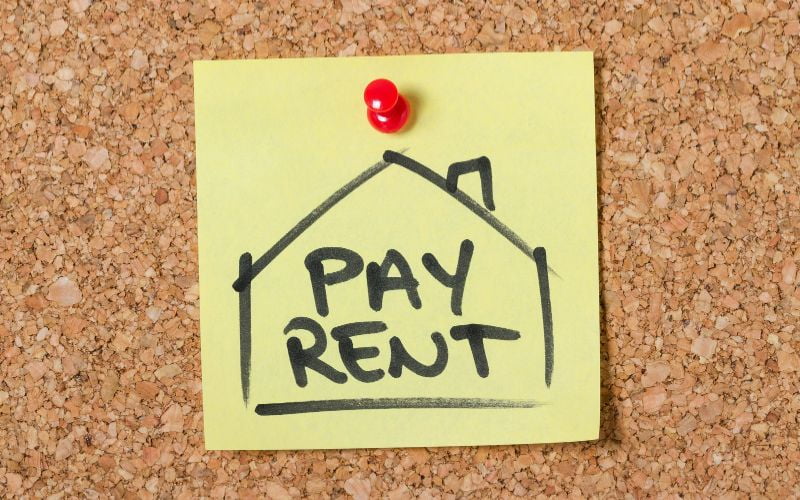Last Updated on March 18, 2024 by Kelvin Nielsen
If you’re a tenant in Delaware, you may be wondering how much your landlord can raise your rent. Fortunately, Delaware law provides guidelines for rent increases. Landlords are allowed to raise rent by any amount and for any reason as long as they give proper notice, don’t do so during the fixed term of a lease, and aren’t doing so for certain discriminatory or retaliatory reasons.

It’s important to note that mobile homes are an exception to this rule. Rent increases that exceed the average rate of inflation require justification. Delaware law specifies the maximum percentage by which a landlord can raise the rent.
A landlord cannot raise the rent by more than this specified percentage in a single year. It is essential for landlords to adhere to these limits to maintain a harmonious relationship with their tenants.
Key Takeaways
- Landlords in Delaware can raise rent by any amount and for any reason as long as they give proper notice, don’t do so during the fixed term of a lease, and aren’t doing so for certain discriminatory or retaliatory reasons.
- Rent increases that exceed the average rate of inflation require justification.
- Delaware law specifies the maximum percentage by which a landlord can raise the rent. A landlord cannot raise the rent by more than this specified percentage in a single year.
Related Posts:
- What Rights do Tenants Have in Delaware?
- What a Landlord Cannot Do in Delaware
- Is Delaware a Landlord-Friendly State?
Legal Framework for Rent Increases in Delaware
Understanding Delaware’s Landlord-Tenant Code
As a landlord in Delaware, you must adhere to the state’s Landlord-Tenant Code when raising rent. The code outlines the rights and responsibilities of both landlords and tenants. It is essential to understand the code to avoid legal issues and maintain a positive relationship with your tenants.
Rent Control Laws and Regulations
Delaware does not have any rent control laws or regulations. This means landlords are free to raise rent by any amount and for any reason, except for mobile homes. However, rent increases that exceed the average rate of inflation require justification.
Notice Requirements for Rent Increases
Delaware law requires landlords to provide written notice of rent increases. The notice must be given at least 60 days before the rent increase takes effect. If the tenant has a lease, the rent increase cannot take effect until the lease expires. Landlords must also provide a written explanation of the reason for the rent increase.
In summary, as a landlord in Delaware, you are required to follow the state’s Landlord-Tenant Code when raising rent. Delaware does not have any rent control laws or regulations, and landlords are free to raise rent by any amount and for any reason, except for mobile homes.
However, landlords must provide written notice of rent increases at least 60 days before the increase takes effect and provide a written explanation of the reason for the increase.
Tenant Protections and Landlord Limitations
As a tenant in Delaware, you have certain protections against rent increases and other landlord actions. Here are some of the key limitations and protections you should be aware of.
Caps on Rent Increases and Frequency
Delaware does not have any statewide rent control laws, so landlords are generally free to raise rents as much and as often as they like. However, some cities and counties in Delaware may have their own rent control regulations, so it’s important to check local laws and regulations before signing a lease.
Protections Against Retaliation and Discrimination
Under Delaware law, landlords are prohibited from retaliating against tenants who exercise their rights under the law, such as complaining about unsafe living conditions or joining a tenant organization. Landlords are also prohibited from discriminating against tenants based on protected characteristics such as race, gender, and religion.
Security Deposit and Eviction Regulations
Delaware law requires landlords to return a tenant’s security deposit within 20 days of the end of the lease, provided there is no damage to the property beyond normal wear and tear. If a landlord wishes to evict a tenant, they must follow Delaware’s eviction laws, which require them to provide written notice and adhere to certain timelines and procedures.
Related Posts:
- Delaware Security Deposit Law: What Landlords and Tenants Need to Know
- 60-Day Notice to Vacate In Delaware: What You Need to Know
- How to Delay an Eviction in Delaware: A Guide for Tenants
Disclosure: The content herein isn’t a substitute for advice from a professional attorney. It’s only meant to serve educational purposes. If you have a specific question, kindly seek expert attorney services.
Sources: Residential Landlord-Tenant Code, CHAPTER 53. Landlord Obligations and Tenant Remedies,

Amanda Rose is a seasoned landlord with 13+ years of expertise in overseeing diverse properties. Her adept management spans single and family homes, along with multi-family apartments and condos, across Wyoming and South Dakota. Her commitment and proficiency have cemented her status as a thriving property management professional.
She is a member of the following organizations: Wyoming Landlord’s Association, National Association of Residential Property Managers (NARPM), Wyoming Apartment Association, South Dakota Multi-Housing Association (SDMHA), and South Dakota Landlord Association (SDLA).







